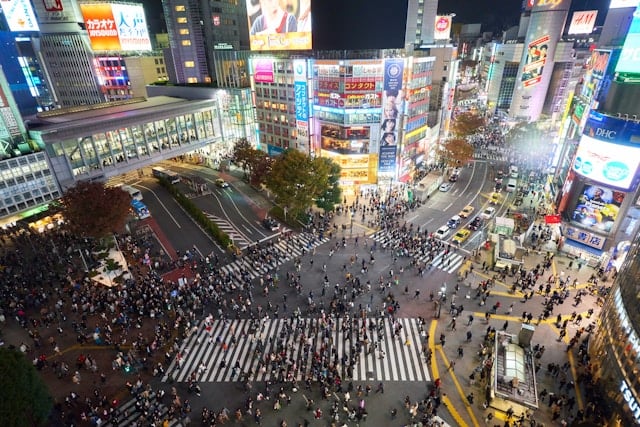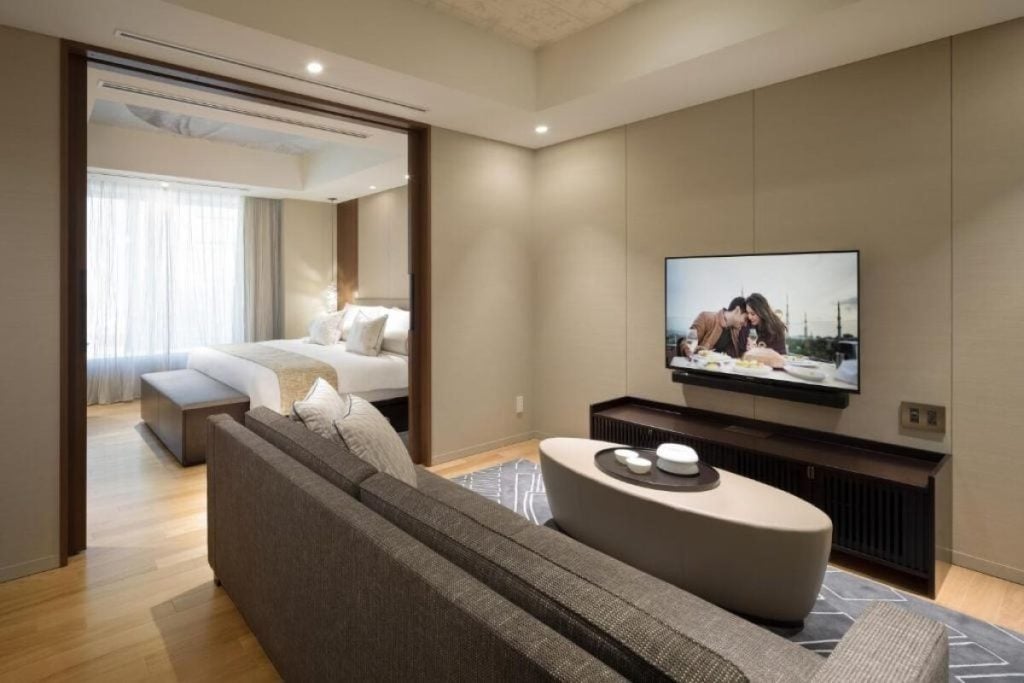Tokyo is an incredible city that offers a blend of the traditional and the ultramodern. As a bustling metropolis, it is a world leader in technology and business, with a significant amount of culture thrown in for good measure. All of these things make it a popular and exciting destination for business travellers. It can, however, be a daunting destination for business travellers with plenty of ways you can inadvertently make an etiquette faux pas. With this in mind we have put together this short guide to cover the basics of business etiquette and practical tips such as must-visit spots in order to help you make the most of your stay.
Culture and business etiquette
For any Tokyo business trip to be successful, it is essential to have an understanding of Japanese business culture. It is characterised by formality, punctuality, and the importance of respect and harmony. For some more insights, you can read about the unwritten rules for job interviews and CV-writing here, for instance, did you know that CVs are always written by hand in Japan?
Here are some key points to remember if you’re visiting for a business trip:
Punctuality
Being on time for a meeting is a sign of respect so plan your travel carefully and aim to arrive ahead of schedule. This will show your Japanese colleagues and clients both respect and professionalism, both characteristics that are much-admired.
Respect and formality
It is important to use a person’s title and last name. You may be invited to do otherwise, but unless this permission is explicitly given, do not assume it. Bowing is a common form of greeting; in the case of a foreign business visitor, a nod or slight bow is appropriate. Business attire is also important. This is generally conservative in nature so a dark suit, white shirt, and tie for men, with similar attire for women. Formal shoes should also be worn so keep the trainers for sight-seeing trips.
Meetings and communication
It is usual for a meeting to begin with small talk, do not try to rush past this important ice-breaker period. Listen to what is being said and try not to interrupt – that’s good business advice wherever you are. Direct eye contact can be seen as confrontational so is best avoided.
Business cards
Whilst business cards are not used nearly as much as they used to be in some countries, they are still important in Japan. In fact, a business card is not simply a piece of paper it represents your status and identity. This means you should include all of your relevant information on the card, and if you want to really impress, this should be in both English and Japanese.
When you present a business card to someone that follows Japanese traditions, it can have an impact on the success of your meeting because it represents an understanding of their cultural practices. Business cards should be exchanged using both hands, with the Japanese language side facing up. Study any business card you are given before carefully putting it away, preferably in a cardholder, to show respect.
Tokyo business districts
There are a number of key business districts in Tokyo that you may like to familiarise yourself with before you travel.

Marunouchi
Well placed for Tokyo Station, this is the premier business district in the city. Here you will find major banks, multinational corporations, and trading companies.
Shibuya
As the hub for new businesses and innovation, Shibuya is well known for its creative industries and tech startups.
Roppongi
This district offers a blend of nightlife and business. It’s where you’ll find many of the foreign embassies, luxury hotels, and international companies.
Shinjuku
Home to the world’s busiest train station, Shinjuku is known as the skyscraper district and is another very important business district in Tokyo. Here you will find government offices among the other high-rise office buildings.
Accommodation options
Travelling to another country, particularly one with a very different culture can often be difficult. For extended business trips to Tokyo, or for those who are looking for something that offers a few home comforts, a serviced apartment in Tokyo is a great alternative to a hotel. This will offer you many of the facilities you might expect from a hotel but with a little more freedom and privacy.

Spots worth visiting
With any business trip, no matter how busy you are, there is certain to be some free time where you can explore the local attractions and Tokyo has plenty of unique things to do.
Shibuya Crossing is well worth taking a look at. This world-famous intersection is a symbol of the city’s vibrancy and energy. The Tokyo Skytree is the place to go for panoramic views of the city. Recognised as the tallest tower in the world, the observation deck offers views across Tokyo. The Asakusa and Senso-ji Temple is another place you shouldn’t miss. The oldest Buddhist temple in Tokyo is located in the historic district. If you want a leisurely stroll, then Gina, which is known for its dining experiences and upscale shopping, is the perfect destination.
Cultural experience and culinary delights
Culture is a huge part of Japan and its people, and there are plenty of ways in which you can immerse yourself and see what Japan is all about. Tea ceremonies and Onsen (hot springs) are a good place to start; and a trip to the Kabuki Theatre is something you should certainly do if you have the time. If your trip coincides with spring, then don’t miss cherry blossom (Sakura) season – good places to go are Shinjuku Gyoen and Ueno Park.
Tokyo is also a food lovers paradise and there are plenty of different dishes that you can try beyond the more usual sushi and ramen, both of which you will find all over the city.
For a more traditional dining experience book a Kaiseki meal that will offer multiple courses and highlight seasonal ingredients. Izakayas are great for after-work snacks and drinks, offering dishes like yakitori and sashimi.
Practical tips
- The transport system in Tokyo is very easy to use and very efficient. A Suica or Pasmo card is convenient for bus or train travel.
- Many of the hotels and cafes in Tokyo will offer free Wi-Fi but a pocket Wi-Fi device will help you to stay connected whilst out and about.
- English is understood in many business settings but learning just a few simple phrases in Japanese before you travel will go a long way and shows respect. For any important meetings you may want to consider hiring an interpreter to ensure nothing is lost in translation.
- The currency is Yen, and whilst credit cards are accepted in most places smaller establishments may still operate on a cash only basis so consider carrying a small amount with you.
- Finally, Tokyo is considered to be one of the safest cities in the world, but it is still wise to exercise caution and be aware of your surroundings.


